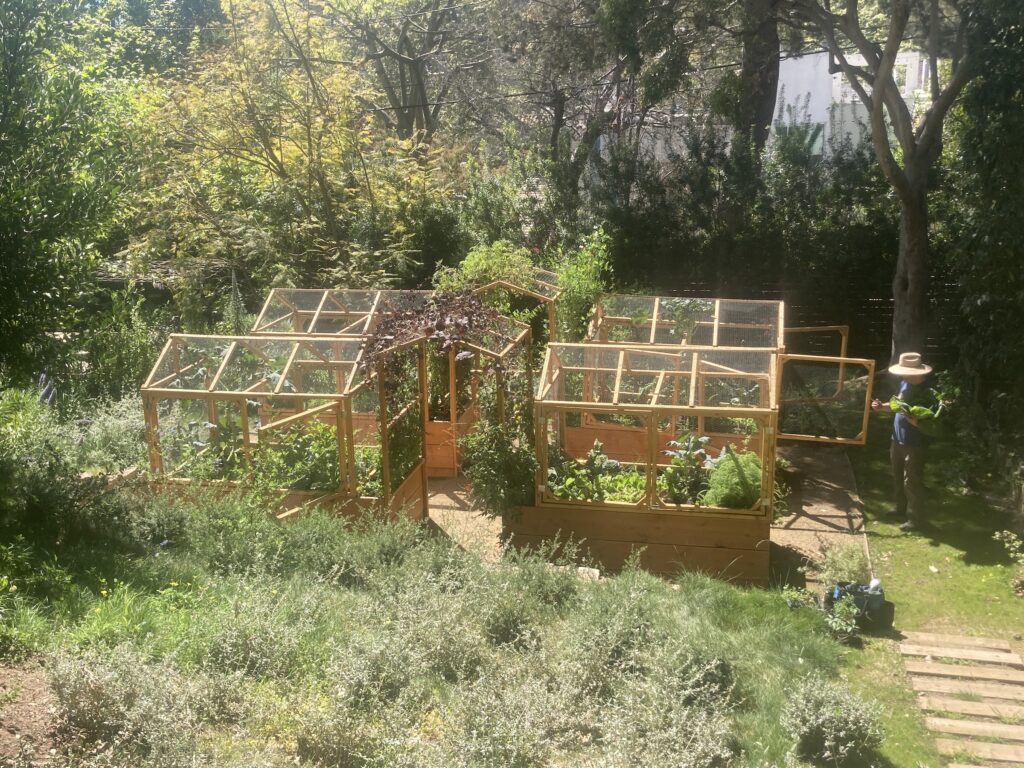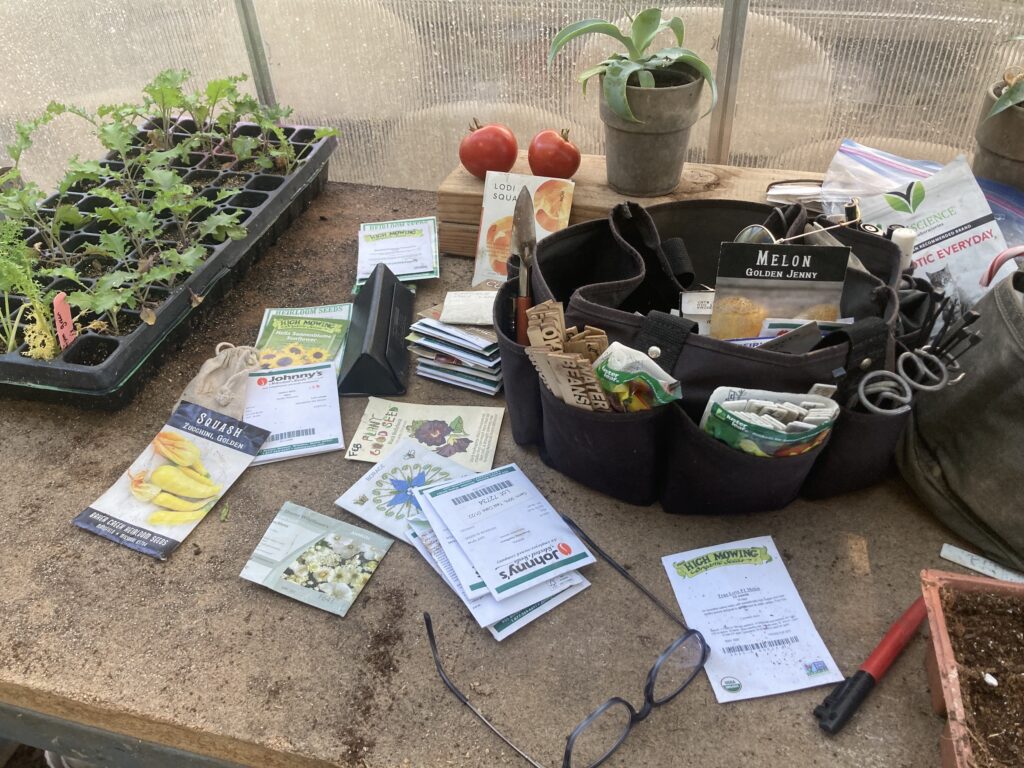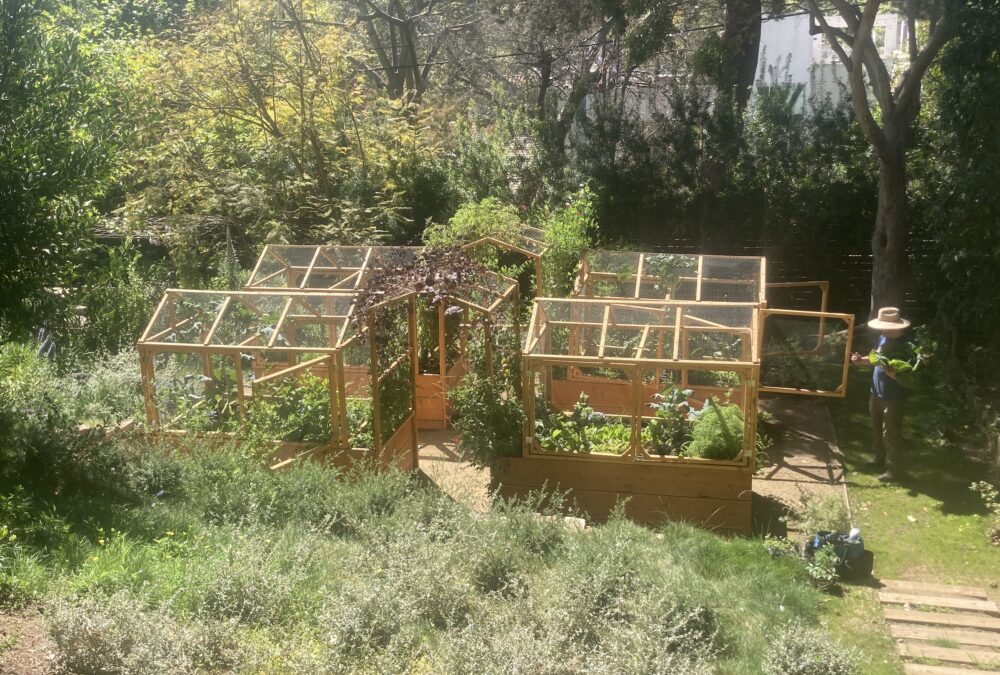
Wendi Dunn grows gardens, and it’s not just her job but her passion. It is also part of a vision for a world where everyone has an opportunity to grow food.
Wendi has always been an environmental activist. She is an outspoken advocate for water quality and against unsustainable development in the Santa Monica Mountains. She was one of the earliest volunteers with Poison Free Malibu, and she has had first hand experience with the impact of rodenticides and other pesticides on nature during her time as a volunteer at the California Wildlife Center. All of those elements came together in her choice to leave a highly successful but less rewarding career to study horticulture at UCLA’s sustainability certificate program.
Today, she’s a master gardener who specializes in building, planting, and tending food gardens that feature vegetables, fruit, herbs and flowers; the result is gardens that are one hundred percent natural, with no herbicides or pesticides, and with a focus on regenerative farming practices.
“It completely changed the trajectory of my career,” she told the Topanga New Times.
Wendi explains that her goal is not just to grow food for people, but to teach them how to grow it for themselves. She visualizes a world where food stability can be achieved in part through community gardens, and by backyard gardeners.
She teaches her clients how to plant, maintain and harvest their gardens, but she is also working to get the message out that almost everyone has the ability to grow food.
“Currently, food security is our most pertinent issue,” Wendi told TNT.
“The pandemic made me realize just how fragile the food chain is, and how important it is to develop food sustainability at a local level. It is vital for our health, the health of our families, and the health of our planet.”

One of Wendi’s goals is to share how easy it is to grow a garden, even in a small space.
She offers some practical advice for beginners. “A 4×4-foot bed or container, or some large cloth pots are a good place to start,” she explains, adding that cloth pots are an excellent option for people with limited space, because they can be placed on a patio or balcony, and are easily moved.
“Be very mindful of the soil, make sure it is right,” she suggests. For gardens with enough space, Wendi prefers raised beds with a layer of weed barrier at the bottom, a layer of gopher-resistant hardware cloth on top of that, and a couple of inches of gravel on top of the gopher barrier. A deep layer of compost goes on top of the gravel, and once the bed is planted, she finishes with 2-4 inches of mulch on top. “Compost, compost, compost,” she says.
The soil should be not too wet—“it should squish together, but crumble apart in your hand,” she says. Soil health is key to pest control as well as plant growth. Compost and the earthworms that live in it provide key nutrients. The mulch on top maintains optimal moisture levels, helping plants grow strong and resilient.
Wendi uses natural pest control whenever possible.“Beneficial insects are my pest control,” she says. “Wasps are my garden protectors.”
If there’s a problem that her insect pest crew can’t handle she sprays a diluted solution of Dr Bronner’s soap, “but only rarely”.
“For the most part, keep soil healthy, with compost and worms, make sure the Ph balance is right, and there’s the right amount of moisture and you won’t have a pest problem,” she says. “It’s a symbiotic balance.”
Once the soil is ready, it’s time to plant. “Plant a couple of seasonal vegetables, that’s it,” Wendi says. “It’s very easy once we get over being afraid to try and just do it.”
She recommends intensive planting—10 percent more than recommended on the seed packet, and she is passionate about heirloom varieties that are open pollinated and not genetically modified.
Wendi says she grows carrots that would have been familiar to Thomas Jefferson, and corn, beans, and squash varieties that come from the ancient Native American tradition of interplanting the “three sisters,” that thrive when grown together.
“I love heirlooms, I love to share the stories,” Wendi explains. “When I hold those seeds in my hand I hold history, the plants I grow are direct descendants. I love that.”
“I also save seeds,” Wendi says. “Many vegetables have beautiful flowers or are a good source of nectar for pollinators and beneficial insects. I let them flower and gather the seeds to share and plant.”
Right now she’s starting melons and cucumbers from seed and planting tomato seedlings. “I grow seasonal produce,” Wendi says. “Let nature be and it will provide nutritious food and a healthy environment.”
Learn more at plowgirlgardens.com
Resources
Johnny Seeds: https://www.johnnyseeds.com
Renne’s Garden Seed: https://www.reneesgarden.com
High Mowing Seeds https://www.highmowingseeds.com
Gardener’s Supply: https://www.gardeners.com





